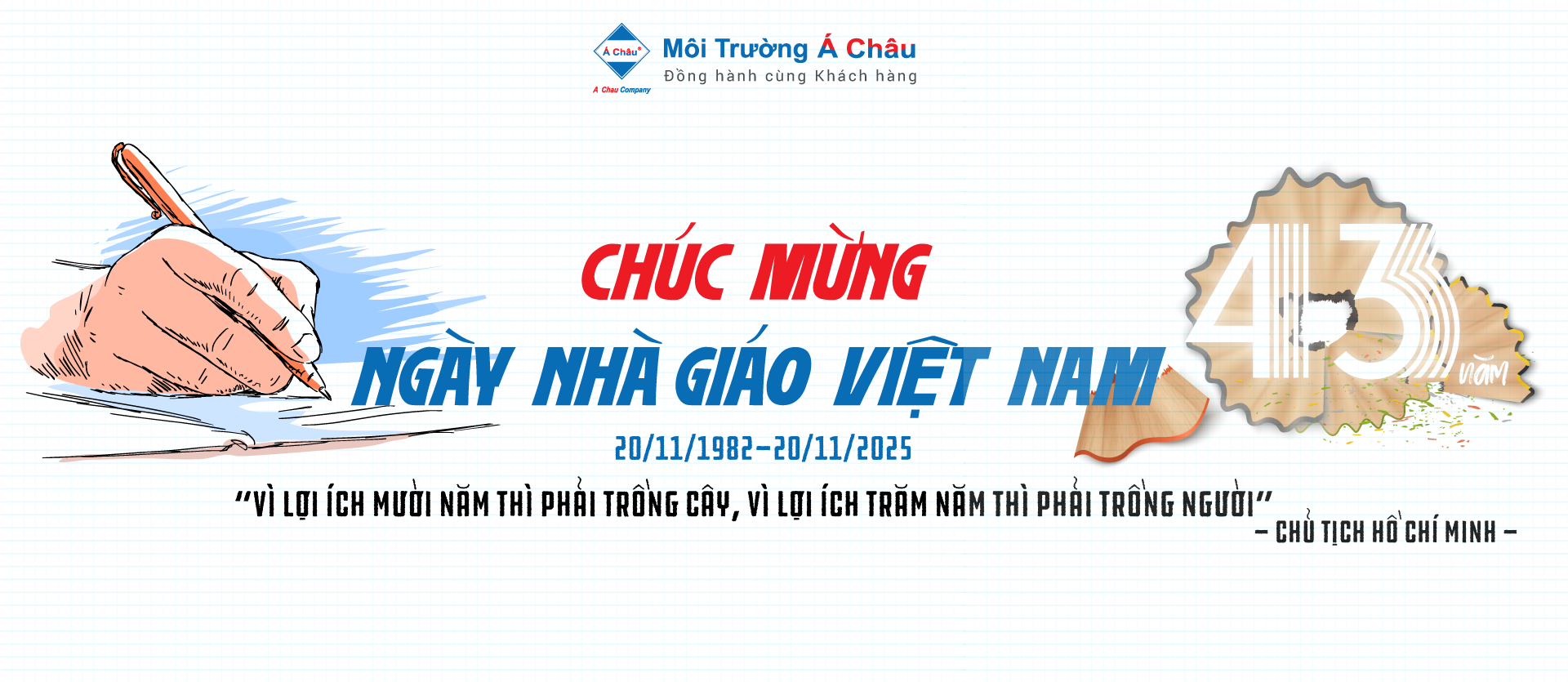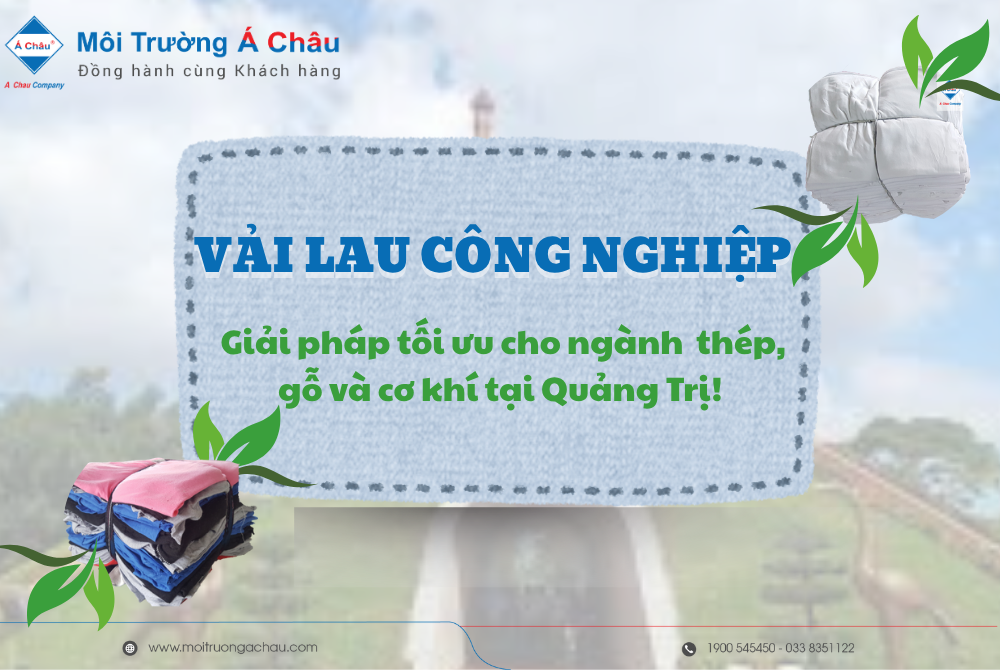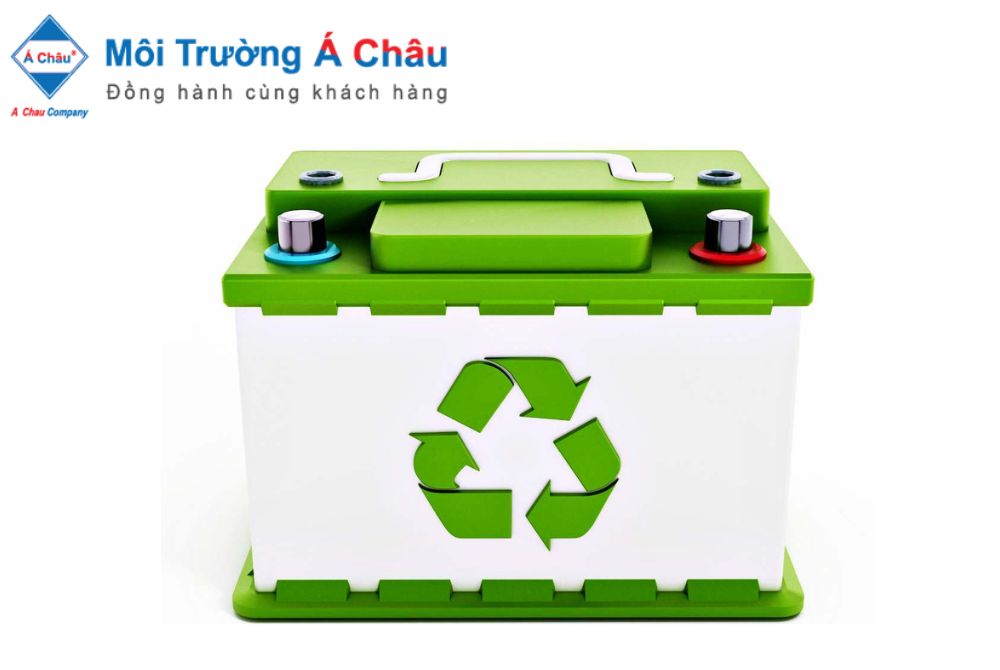EPR is a "Green Certificate" in the global supply chain
EPR is a national competitive advantage, a "Green Certificate" so businesses can export to large markets with high standards, thereby deeply participating in the global supply chain.
Extended Producer Responsibility (EPR) is stipulated in Article 54 of the Law on Environmental Protection 2020 and detailed in Decree No. 08/2022/ND-CP.
Starting January 1, 2024, manufacturers and importers of lubricant products, batteries, accumulators, tyres, and other commercial packaging must recycle or pay fees to support operations.
EPR is expected to positively promote a circular economy in Vietnam, offering both opportunities and challenges for sustainable business development within the Vietnamese business community.
EPR is the national competitive advantage
Experts believe that Environmental Protection (EPR) is a responsibility and opportunity for businesses to develop sustainably, particularly in Vietnam, which is heavily impacted by climate change and environmental pollution. Implementing EPR will help businesses meet partner demands and participate in the global value chain.
This presents a significant opportunity for businesses to receive additional financial support from EPR, alongside sources from production and business, thereby fostering a shared responsibility for quality and reducing waste in the communities where they operate.
Mr. Le Anh, Director of Sustainable Development at Duy Tan Recycling Joint Stock Company, explains that EPR is a national competitive advantage and a "Green Certificate" for businesses exporting to high-standard markets.
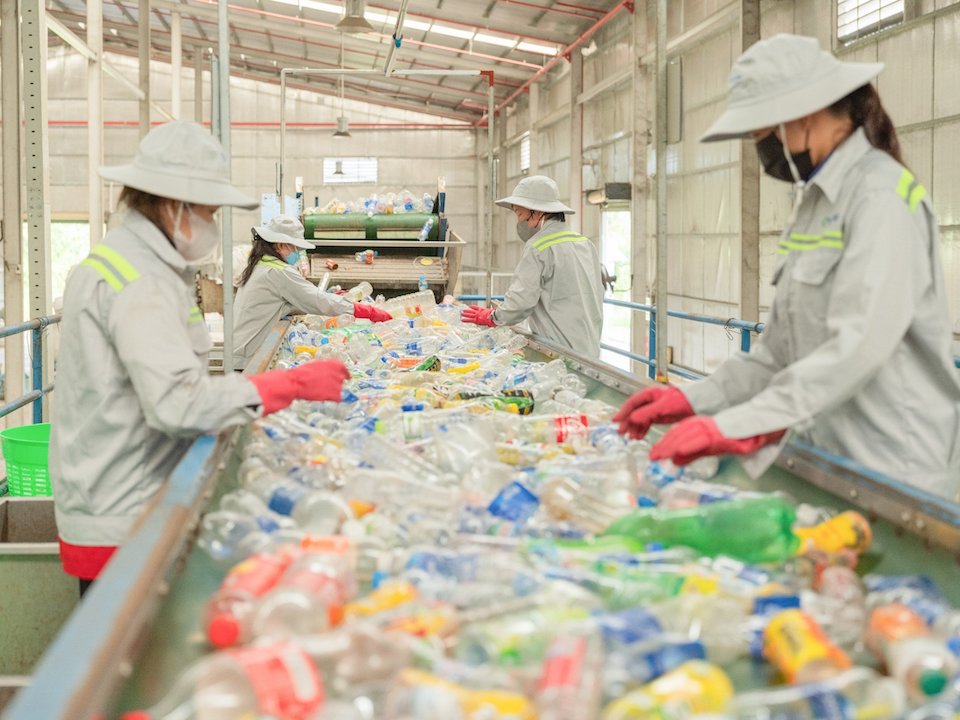 Hình ảnh tái chế nhựa tại Duy Tân.
Hình ảnh tái chế nhựa tại Duy Tân.
Reported that the market had shown positive progress, with many units learning about collection policies for EPR implementation. This year, six businesses have been educated about the policy, which allows them to participate in collecting and recycling used plastic bottles and contributing to environmental protection.
Duy Tan Recycled Recycling collects 180 tons of plastic waste daily, equivalent to 12 million bottles, for recycling and uses 60% of its recycled plastic resin output to produce drinkable water bottles, according to Mr Le Anh.
Vietnam, one of the first Southeast Asian countries to implement EPR tools, faces challenges in implementing new regulations and processes, which require the participation of professional agencies and the entire society for smooth implementation and effective enforcement.
Mr. Nguyen Thi, from the Ministry of Natural Resources and Environment, highlighted the challenges in Vietnam's EPR implementation, including high recycling costs due to inadequate infrastructure, technology, and professional recycling systems.
Despite the development of large-scale recycling facilities, many small-scale recycling points and villages still need to meet EPR requirements. Businesses must learn, consider, and choose recyclers and collectors to fulfil their duties and meet the amount of recycling collected.
A motivation mechanism.
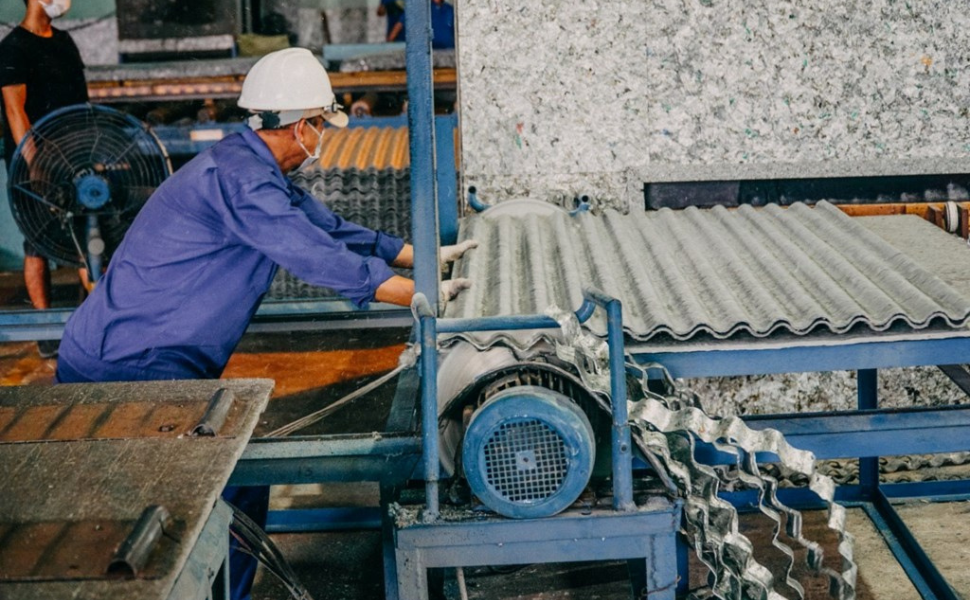 Hình ảnh tái chế vỏ hộp giấy thành tấm lợp
Hình ảnh tái chế vỏ hộp giấy thành tấm lợp
The current incentive mechanisms, including tax exemptions, land use fees, green credit access, and green bonds, are designed to support recyclers and investors in recycling. These policies provide a strong incentive for investors to collect and recycle packaging, contributing to EPR infrastructure development.
Policies are in place to promote a Circular Economy, focusing on cleaner production, extended product life cycles, and product reuse to support market development.
MONRE has set criteria for eco-labels for packaging products, requiring at least 20% recycled plastic. This labeling incentivises recycling facilities and promotes the recycling market. MONRE amended Decree 08 to reduce the compliance burden and submitted it to the government, aiming to help businesses reduce the compliance burden.
Source: vietnamfinance.vn, "CDN is afraid of 'green certificate' EPR: Very necessary but expensive investment", posted on April 8, 2024, see link https://vietnamfinance.vn/dn-e-ngai-chung-chi-xanh-epr-rat-can-nhung-dau-tu-ton-kem-d109075.html, accessed June 5, 2024.
